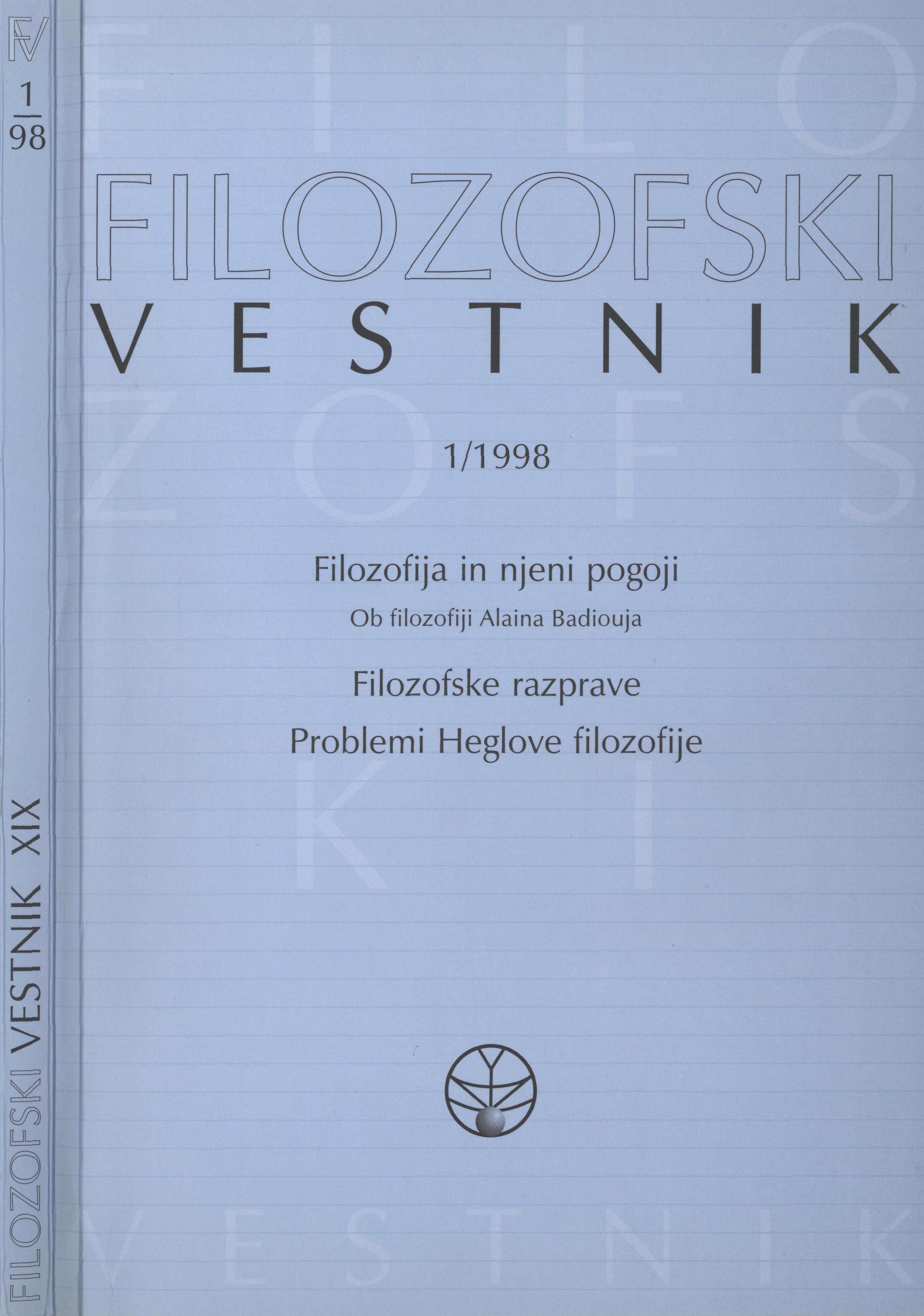Kant: v kakšnem pomenu so sodbe okusa estetske?
Povzetek
Naše izhodišče je Kantovo razločevanje med slovnično obliko sodbe in njeno logično obliko. Logična poanta v podporo trditvi, da so sodbe okusa estetske, je pripomba, da sodbe okusa ne povezujejo predstave s pojmom. Sodba okusa sama še ne postulira soglasja vsakogar, temveč to lahko stori le logična obča sodba, ker lahko navede razloge. Pri tem se po analogiji opiramo na Kantovo razločevanje med sodbami zaznavanja in sodbami izkustva iz Prolegomen. Teza, da sodbe okusa niso podvržene dokazu, je povezana s Kantovim pojmovanjem, da lepota ugaja takoj, neposredno, da odkritje nečesa lepega zahteva neposredno izkustvo predmeta. Po Kantu je dojemati smotrno urejeno stavbo nekaj popolnoma drugega kakor zavedati se te predstave s senzacijo ugajanja. V tem primeru povezujemo predstavo v celoti s subjektom, in sicer z njegovim življenjskim občutjem, ki ga imenujemo občutje ugodja in neugodja. Sodbe okusa so torej podvrsta estetski sodb; fenomenološko jih opazimo preko našega zavedanja občutja ugodja ali neugodja, ko zaznavamo predmet. To, da je predstava predmeta neposredno povezana z ugodjem, bi dalo zgolj empirično sodbo. Zdi se, da Kant navaja ta izkustvena dejstva kot evidenco za svojo trditev, da so sodbe okusa estetske. Sklep, h kateremu nas napeljuje, je, da je sodba okusa estetska, to je, da je o stanju subjekta, ki zaznavno ali čutno dojema predmet. Ta analiza sodbe okusa kot estetske tvori tezo o antinomiji okusa. Skupaj z analizo sodbe okusa kot nezainteresirane sodbe je ustvarjeno nasprotje, ki zahteva transcendentalno dedukcijo okusa. Torej ima trditev, da je sodba okusa estetska, osrednji pomen v nadaljnji argumentaciji Kritike presodne moči.Prenosi
Podatki o prenosih še niso na voljo.
Prenosi
Objavljeno
2016-01-24
Kako citirati
Kante, B. (2016). Kant: v kakšnem pomenu so sodbe okusa estetske?. Filozofski Vestnik, 19(1). Pridobljeno od https://ojs.zrc-sazu.si/filozofski-vestnik/article/view/4025
Številka
Rubrike
Filozofske razprave
Licenca
Avtorji jamčijo, da je delo njihova avtorska stvaritev, da v njem niso kršene avtorske pravice tretjih oseb ali kake druge pravice. V primeru zahtevkov tretjih oseb se avtorji zavezujejo, da bodo varovali interese založnika ter da bodo povrnili morebitno škodo.
Podrobneje v rubriki: Prispevki





